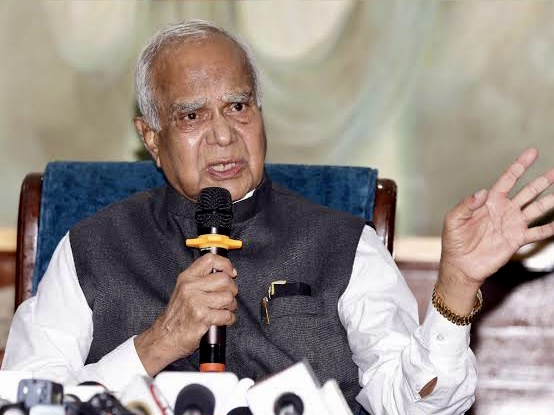CHANDIGARH
In the midst of an escalating dispute between the Punjab government and Governor Banwarilal Purohit, over the Governor withholding certain bills passed by the state Assembly, the Supreme Court issued a stern caution on Friday. The Supreme Court, led by a three-judge Bench with Chief Justice D.Y. Chandrachud at the helm, expressed deep concern over the Governor’s assertion that bills were rendered invalid due to perceived “irregularities” in the Assembly session.
The Supreme Court admonished the Governor, stating that he was “playing with fire” and underscored the significance of upholding the decisions of a duly elected legislative body, cautioning against actions that could potentially undermine the democratic process.
During the proceedings, the Bench directed its attention to Additional Solicitor General Satya Pal Jain, representing the Governor’s Office, urging restraint and emphasizing the gravity of not impeding the legislative process. Simultaneously, the Supreme Court did not shy away from critiquing the conduct of the Punjab government. It raised objections to the government’s failure to formally conclude the Budget Session, merging it with the Winter Session in what the Bench deemed as an undermining of the constitutional framework.
Addressing senior counsel Abhishek Manu Singhvi, who represented the Punjab government, the Bench underscored the importance of adhering to established rules governing the conduct of legislative sessions. It questioned the prolonged duration of the budget session, emphasizing the necessity for three distinct sessions to ensure the effective functioning of a democratic system.
Furthermore, the court sought clarification on the constitutional basis for the Governor’s actions, questioning whether the Speaker had the authority to adjourn the session sine die. Expressing disapproval of the Governor’s refusal to give assent to bills based on the perceived invalidity of the 19-20 June session, the court highlighted the potential consequences of such actions on the functioning of democratic institutions.
In a noteworthy intervention, Solicitor General Tushar Mehta, representing the Centre, proposed a constitutional solution to the ongoing dispute. He requested a week to facilitate discussions and find an amicable resolution. Despite this proposal, the Bench decided to pass a short order after the lunch break, indicating the urgency and gravity of the situation.
This recent development follows the Supreme Court’s earlier disapproval of governors delaying the approval of bills passed by state assemblies, emphasizing the need for timely action to prevent matters from unnecessarily escalating to the apex court. The judicial scrutiny underscores the delicate balance between the executive and legislative branches and the imperative to preserve the integrity of democratic processes.

